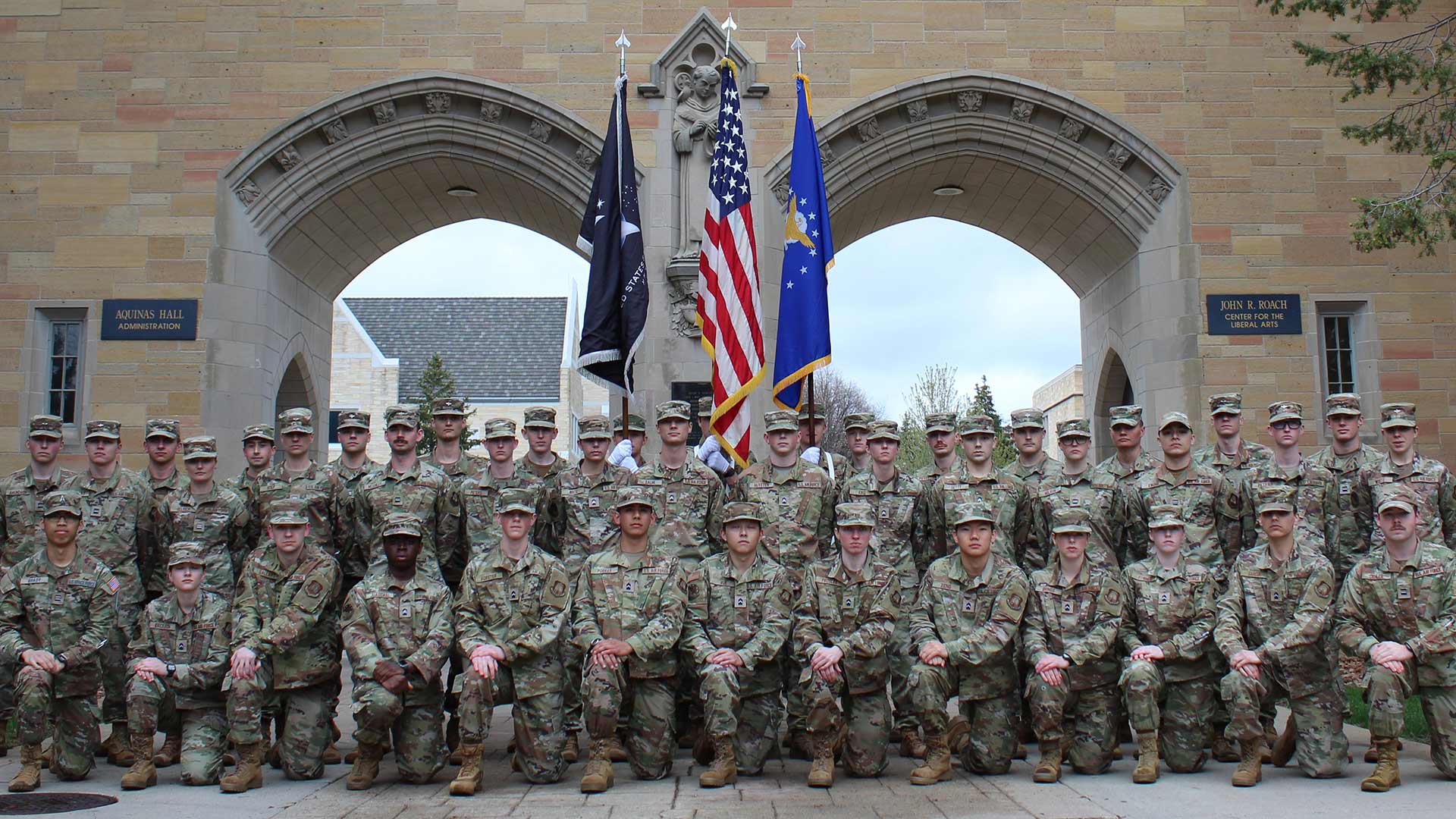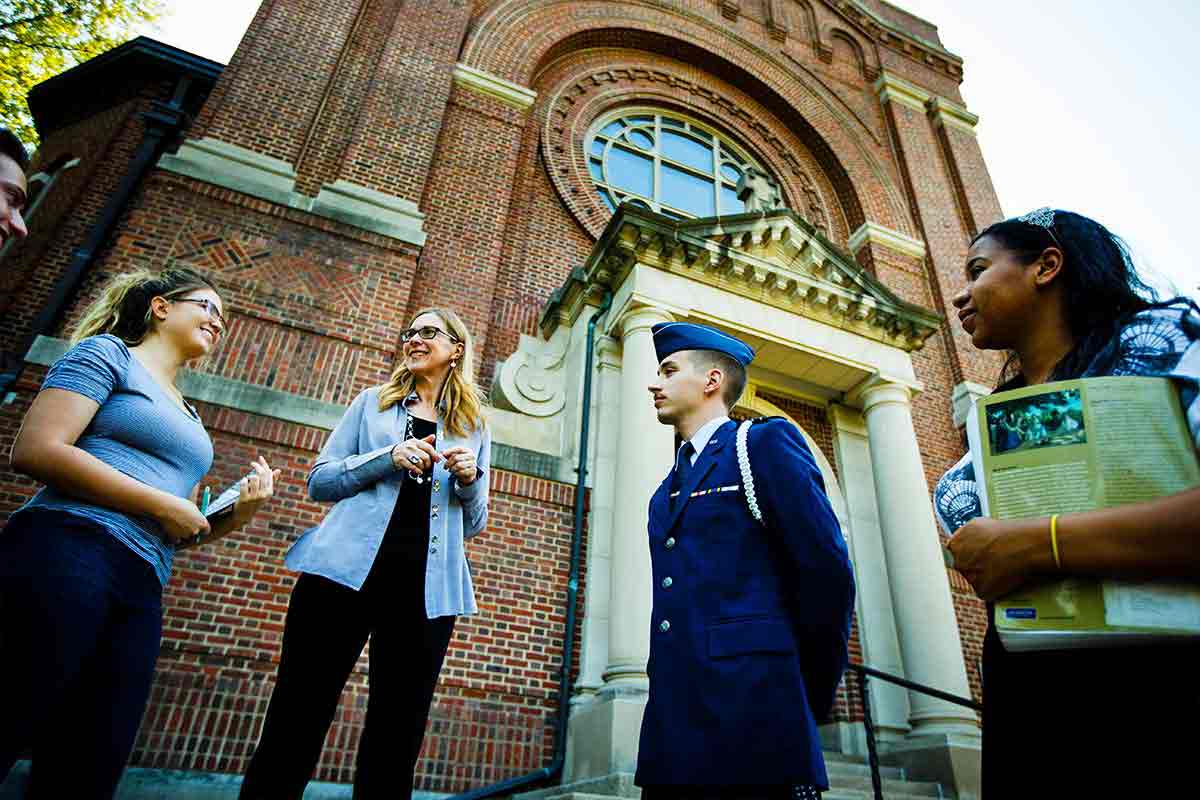Program Course Guide
The first year of the aerospace studies curriculum is comprised of AERO 111 (Heritage and Values I) during the fall semester, and AERO 112 (Heritage and Values II) during the following spring semester.
The second year of the aerospace studies curriculum is comprised of AERO 211 (Team and Leadership Fundamentals I) during the fall semester, and AERO 212 (Team and Leadership Fundamentals II) during the following spring semester. Students wishing to pursue a commission into the Air Force or Space Force will attend a two-week long military “Field Training” during the summer after their second year in the Air Force ROTC program.
The third year of the aerospace studies curriculum is comprised of AERO 321 (Leading People and Effective Communication I) during the fall semester, and AERO 322 (Leading People and Effective Communication II) during the following spring semester.
The fourth year of the aerospace studies curriculum is comprised of AERO 421 (National Security and Preparation for Active Duty I) during the fall semester, and AERO 422 (National Security and Preparation for Active Duty II) during the following spring semester.
In addition to the four years of aerospace studies classroom instruction, students pursuing a commission in the Air Force and Space Force must also take AERO 200 (Leadership Laboratory, LLAB) and AERO 201 (Physical Fitness Laboratory, PT) each semester until graduation. Certain students studying Air Force ROTC-classified “technical” degrees (engineering, physics, chemistry, computer science, etc.) may extend their undergraduate degree plan into a fifth year but must continue to enroll in LLAB and PT until graduation.

